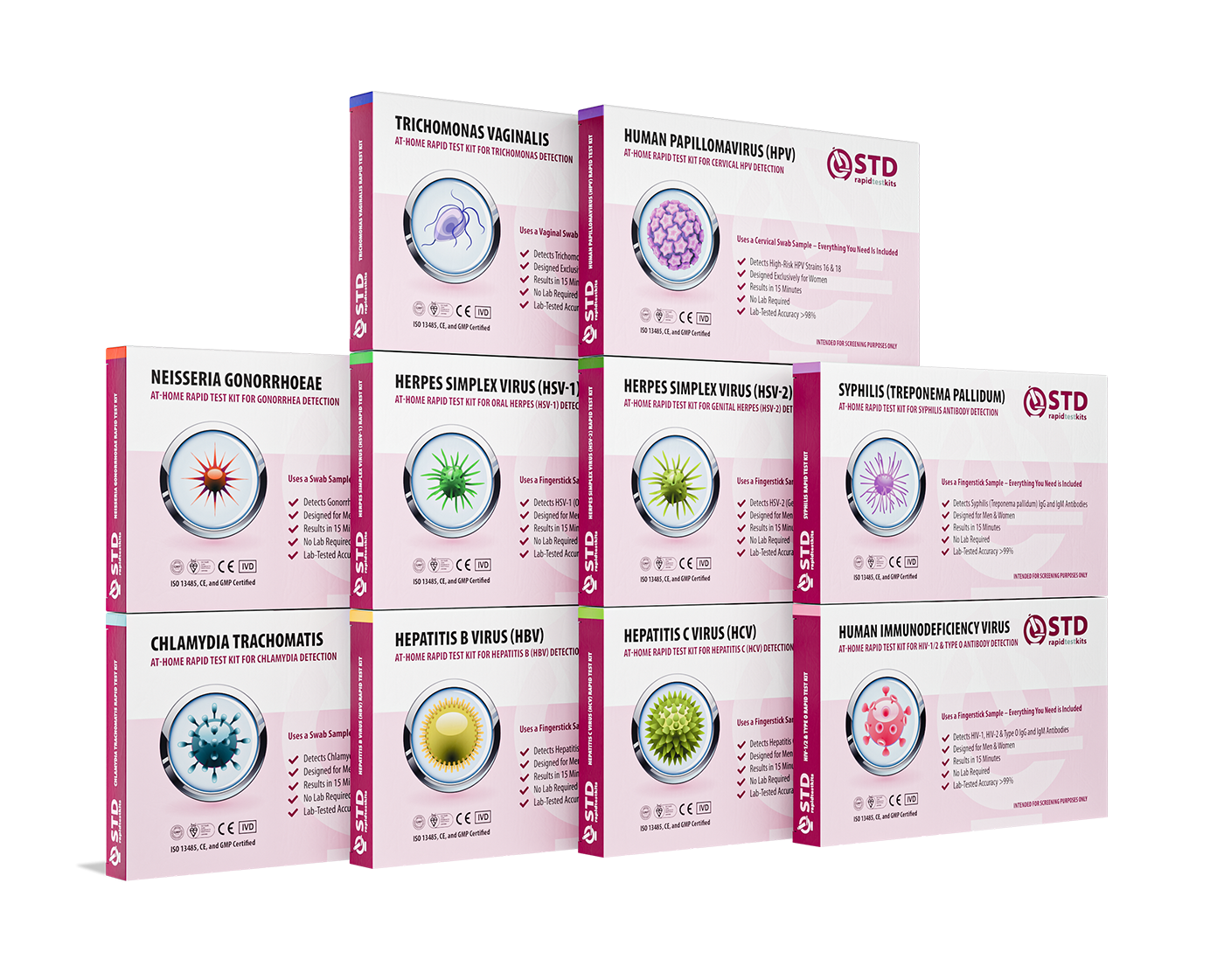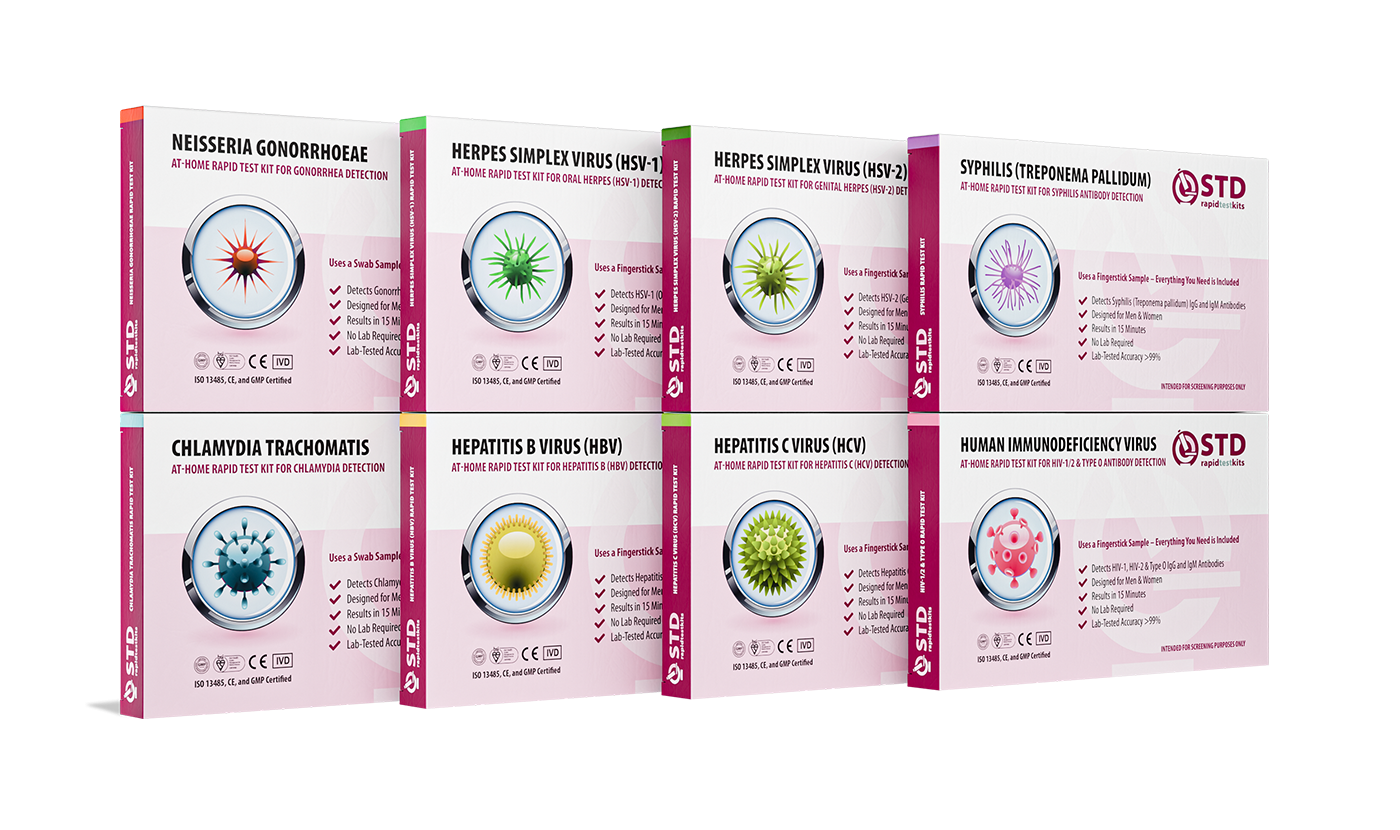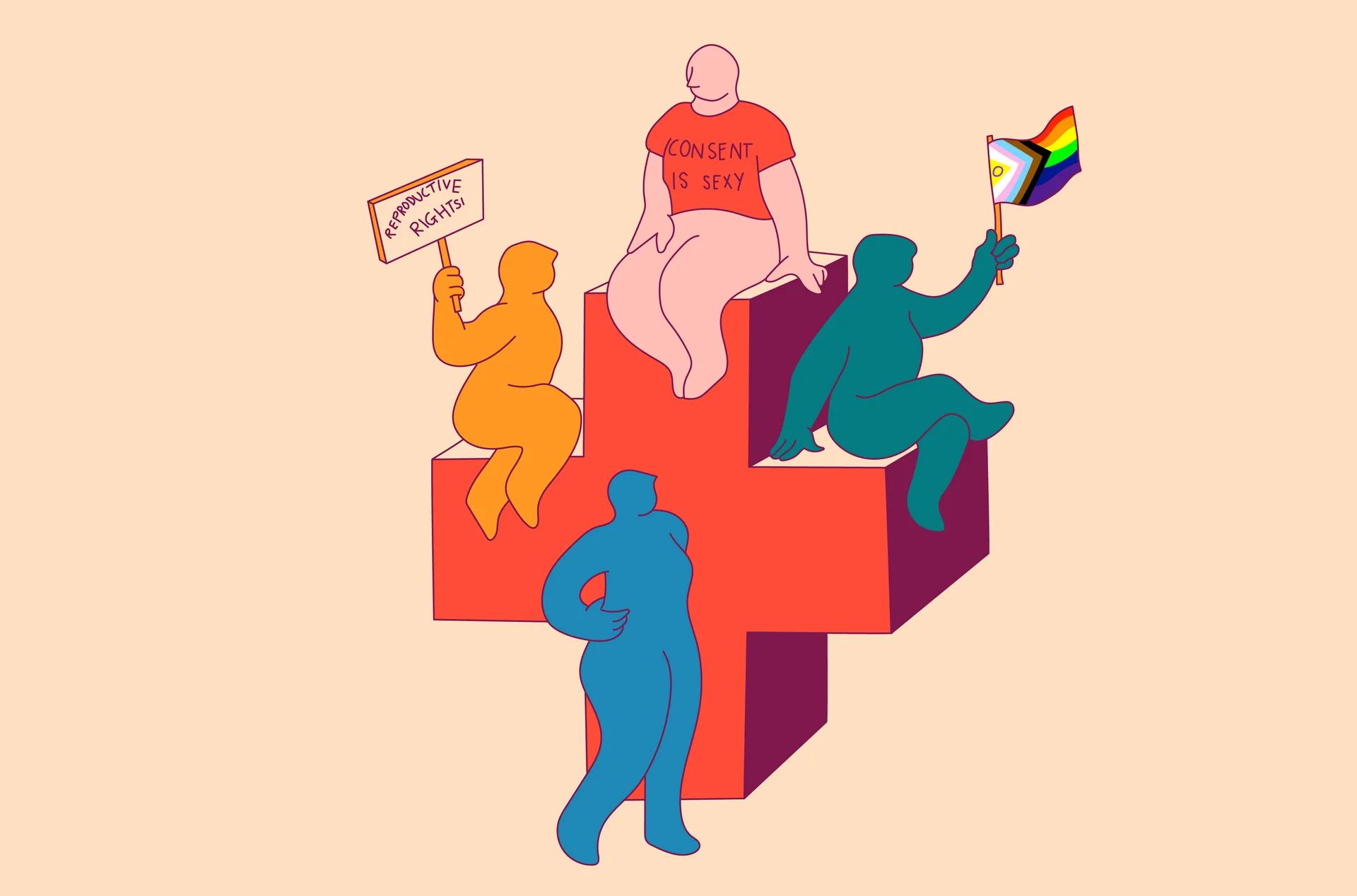Quick Answer: Even people who embrace sex positivity can experience lingering shame after STD testing, because internalized stigma, cultural messages, and self-conscious emotions like shame and guilt don’t vanish just because you're informed. Understanding the psychological roots, cultural pressures, and emotional triggers behind that “dirty” feeling is the first step toward reclaiming sexual confidence and self-worth.
The Roots of Shame: Not Always a Rational Reaction
Shame is a self-conscious emotion, it tells you there’s something “wrong” with who you are as a person. It’s fueled more by cultural standards than by facts. Even in sex-positive spaces, messages from religion, school, family, or healthcare can echo that shame: that asking for a test is a sign something is off, that being sexually active is risky, or that infections make you less worthy.
Studies show that STI-related stigma and shame are strongly linked to decreased testing and disclosure, even among educated adults who identify as liberal or open about sex. People may intellectually endorse sex positivity but emotionally carry value judgments shutting down connection instead of opening it.

People are also reading: What to Expect During Your First STD Test, Clinic vs. Home Edition
Sex Positivity vs Internalized Stigma
Believing deeply in self-love, autonomy, and ethical sexual choices doesn’t erase internalized shame overnight. You might affirm pleasure and honesty in theory, yet feel vulnerable after testing because part of you absorbed the idea that sex is dirty, risky, or unclean.
Even so-called sex-positive communities sometimes slip into subtle policing, talking about “clean” partners, shaming certain behaviors, or reinforcing hierarchy. That makes it harder to fully integrate testing into a positive identity. According to one study, internalized stigma tied to STIs made individuals less likely to seek testing or follow-up, even when they knew it was medically recommended.
Shame vs Guilt vs Embarrassment (Why Test Feelings Don’t Fit Neatly)
Shame says: "I am broken." Guilt says: “I did something wrong.” Embarrassment is about a moment, “I’m exposed.” It’s common to feel embarrassment after testing, but what deepens it into shame is the voice inside that refuses to say: “I’m worth care regardless.” Shame can eat into sex-positive identity by turning curiosity or responsibility into self-judgment.
This emotional complexity is documented: tests and diagnoses often shift behavior, but also affect self-image and mental health, especially without support or debriefing. Emotions don’t follow logic, or ideology, they follow pain history.
When Testing Feels Like Confession, Not Self‑Care
Even asking for an STD test can feel like owning up to wrongdoing, especially if providers seem judgmental or your medical intake forms feel invasive. Clinics can unintentionally reinforce shame through tone, paperwork, or the way they talk about risk. That feeling sticks long after you leave.
Even in private home testing, the stark presentation of results, possibly with no follow-up support, can leave a gap between knowledge and emotional processing. Without conversation or context, hearing results can feel isolating, as if your body betrayed you, rather than acknowledging you acted responsibly.
Check Your STD Status in Minutes
Test at Home with Remedium10-in-1 STD Test Kit

 For Women
For Women Results in Minutes
Results in Minutes No Lab Needed
No Lab Needed Private & Discreet
Private & DiscreetOrder Now $189.00 $490.00
For all 10 tests
Why Positive or Negative Results Can Still Trigger You
Surprisingly, shame doesn’t only show up when a test result is positive. For some people, testing negative can trigger guilt, survivor’s guilt, relief laced with shame for even being worried, or fear of future exposure. It can also reinforce the idea that you’ve “dodged a bullet,” implying that infection would have made you less worthy. This reinforces stigma against those who do test positive.
For people who receive a positive result, shame may come roaring back, even if you intellectually know better. There’s grief, fear, and panic, but there’s also a shift in how you see your body, even if it’s temporary. You may feel unlovable, “gross,” or like your sex life has an expiration date. These feelings aren’t facts. They are echoes of stigma. And they can be challenged.
Emotional Debriefing: What We’re Not Taught After Testing
Very few clinics, apps, or home testing services provide emotional support as part of the testing process. You might get a results screen and a lab number, but no one to talk to, no one validating your fear, no roadmap for the emotional part. That’s a missing link in sexual healthcare.
Post-test debriefs can help process results, whether you’re solo or with a partner. That might look like:
- Journaling how you felt before, during, and after testing
- Talking to a therapist or sex educator who gets STI shame
- Using affirmations or guided meditations to calm guilt spirals
- Reading lived experiences from others to normalize your reaction
It’s not “dramatic” to need emotional support after a test. It’s smart. And it helps your sex-positive identity actually stay connected to your body instead of floating above it.
Reframing the Narrative: What Testing Actually Means
Testing isn’t about catching you doing something wrong. It’s about caring enough to know. It’s about curiosity, compassion, and prevention. Getting tested is what sexually responsible people do, not because they fear sex, but because they honor it.
When you frame testing as part of your pleasure strategy, not your damage control, it transforms how you interpret the process. You’re not fixing a mistake. You’re building trust, with yourself, your partners, your future.
And if your values are sex-positive, this is the practice that puts those values into motion. You’re not failing your beliefs. You’re living them. Even if it doesn’t feel good right now.

People are also reading: Too Embarrassed to Get Tested? Try At Home STD Test Kits Instead
When Sex-Positivity Starts to Feel Like a Performance
Sometimes the shame creeps in because you feel like you’re “failing” at being sex-positive. You might think: “If I were really empowered, I wouldn’t feel scared right now.” But that turns empowerment into a performance. It makes confidence another standard to beat yourself up over.
True sex-positivity includes space for fear, mess, confusion, and contradiction. It means being honest about the fact that liberation isn’t always linear, and that’s okay. You can believe in freedom and still grieve a diagnosis. You can celebrate choice and still feel afraid of your body. None of that makes you less sex-positive. It makes you human.
Shame is often a sign that your brain is trying to protect you. But you don’t need to be protected from your truth. You just need more space to hold it all.
When Testing Triggers Old Wounds
Let’s be real, STD testing isn’t just about what’s happening now. For a lot of us, it scrapes up every old wound we’ve ever carried about our bodies, our worth, or what we were taught sex means. Maybe you had purity culture shoved down your throat. Maybe someone once told you getting an STD meant you were “slutty” or “irresponsible.” Maybe your first sex ed lesson was a slideshow of infected genitals and a fear-soaked warning to stay “clean.”
So now, even when you know better, your body still flinches. That’s not weakness. That’s survival. The body remembers what shame felt like, even if your mind has moved on. Getting tested can be a kind of flashback. A soft panic. A voice in your gut saying, “What if they were right?”
But they weren’t. And your willingness to get tested, to show up for your body, to even ask these questions, that’s proof. You’ve already unlearned more than most people ever will.
Navigating Disclosure After a Test (Even If It’s Negative)
Why does even a clean bill of health make us anxious to talk about testing? Because sex still comes with baggage. Telling a partner you got tested, even just that, can feel like admitting something sketchy happened. We’re conditioned to believe sexual responsibility is only needed after we’ve already “done something bad.”
So disclosure becomes a confession, not a celebration. We say it in a nervous tone. We minimize it: “Just routine!” “Don’t worry, it was all fine!” when what we should be saying is: “I care enough to check in with my body before I bring it into yours.”
Flip the script. Lead with pride. Testing is part of the sex. It’s how you make connection safer, hotter, and less freighted with anxiety. You don’t have to carry the conversation like you’re doing damage control. You’re modeling respect, for them and yourself.
Check Your STD Status in Minutes
Test at Home with Remedium8-in-1 STD Test Kit

 For Men & Women
For Men & Women Results in Minutes
Results in Minutes No Lab Needed
No Lab Needed Private & Discreet
Private & DiscreetOrder Now $149.00 $392.00
For all 8 tests
What Rebuilding Trust With Your Body Actually Looks Like
Testing, especially if something comes back positive, can mess with how you relate to your own body. Suddenly the thing you use for pleasure, love, exploration? It feels dangerous. Contaminated. Like it betrayed you.
This is where the healing starts. Rebuilding doesn’t mean pretending you’re fine. It means talking to your body like it’s a friend you’re learning to trust again. You might say:
- “You did nothing wrong.”
- “You were trying to connect, not self-destruct.”
- “I’m listening now. What do you need next?”
You’re not dirty. You’re not broken. You’re someone brave enough to look for the truth, even when it’s hard. That’s not shameful. That’s powerful as hell.
Why This Isn’t Just About You
If you're feeling this way, odds are you're not the only one. This isn’t just your private shame spiral, it’s part of a bigger pattern. A system that still teaches people, especially women, queer folks, trans folks, and anyone outside the mainstream, that our sexuality is risky by default. That our pleasure must be earned by pain. That we can have sex or safety, but not both.
When you name what you’re feeling and walk through it anyway, you’re breaking that pattern. You’re modeling something different. And even if no one sees it, that ripple effect matters. Testing is care. Talking about it is power. Feeling shame and not letting it shut you down? That’s resistance. That’s healing. That’s sex-positivity in motion.
FAQs
1. Why do I feel bad after testing even though I believe in sex-positivity?
Because emotional responses don’t always follow ideology. Shame is tied to deep conditioning, and testing can trigger old scripts even if you’ve outgrown them.
2. Can testing make you feel like you’ve done something wrong?
Yes, especially in cultures where sex and health are moralized. But testing is a form of care, not confession. You’re not guilty, you’re proactive.
3. How do I talk to a partner about testing without sounding guilty?
Lead with confidence. “I got tested because I value my body and yours.” Treat testing as responsible self-care, not a red flag.
4. I feel “unclean” even though I tested negative. Why?
Internalized stigma can make you feel tainted by the idea of risk. But being informed and responsible isn’t dirty, it’s strong and smart.
5. How can I stop overthinking my testing experience?
Debrief. Journal, talk it out, or connect with a therapist. Treat it like emotional aftercare, it’s part of the process, not a flaw.
6. Does a positive result mean I’m “unsafe” to date or hook up?
No. It means you need to communicate and maybe start treatment, but you’re still deserving of connection, intimacy, and love.
7. Why do people say “clean” or “dirty” after STD testing?
Because of stigma. That language reinforces shame and should be ditched. You’re not “dirty” for having an infection, you’re just human.
8. How do I process the emotional impact of testing alone?
Use self-compassion. Give yourself space. And seek out support spaces, online communities, sex-positive friends, or professionals who get it.
9. Can I be sex-positive and still feel triggered by STI risk?
Absolutely. Sex positivity includes space for fear, trauma, healing, and nuance. There’s no “perfect” way to feel.
10. Where can I find non-shaming testing and results support?
Try LGBTQ+ clinics, Planned Parenthood, or organizations like ASHA or Scarleteen. Some online testing sites also offer counseling follow-up.
Shame Isn’t the End of the Story
Feeling shame after testing doesn’t mean you’ve failed. It means you’re human, raised in a world that’s spent generations teaching you that sex is something to hide, punish, or regret. But you’re here. You’re asking the hard questions. You’re choosing your health over silence. And that’s not shameful, it’s revolutionary.
Sex positivity doesn’t erase pain. It gives us tools to walk through it. To name it. To outgrow the lies and write something gentler, smarter, and more honest in its place. So even if you feel dirty right now, know that’s not the truth. You’re not broken. You’re brave. And you’re doing the damn work of loving yourself in a world that still whispers you shouldn’t.
Sources
1. Triggers of self-conscious emotions in STI testing (PMC)
2. Shame and STIs: Emerging Adult Students’ Felt Shame and Stigma (MDPI)
3. STD-Related Stigma & Testing Patterns (Guttmacher Institute)










